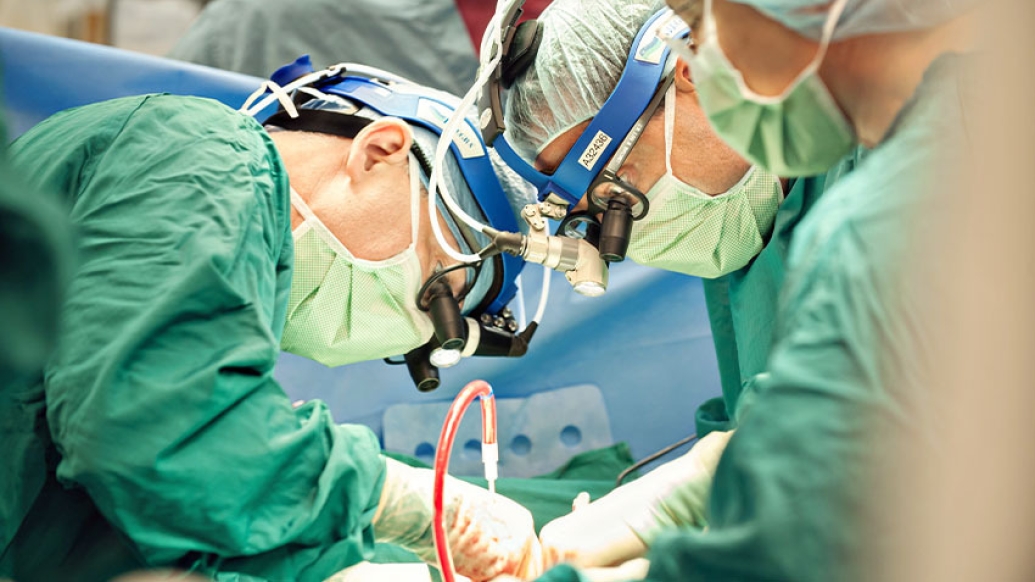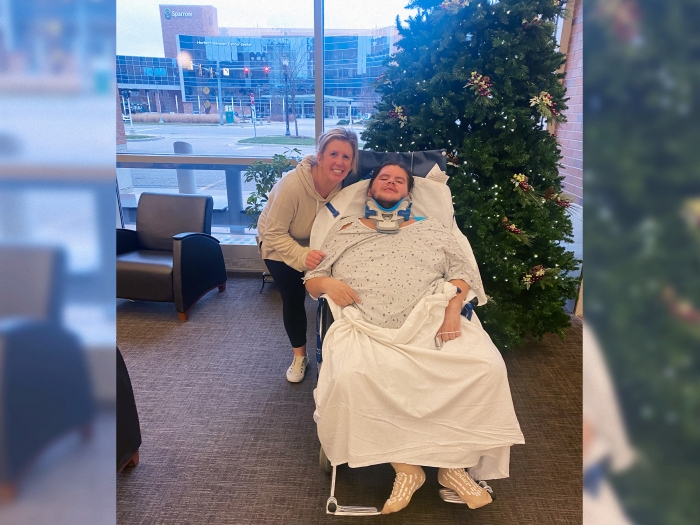After a popular medical device for heart failure is taken off the market, a cardiac surgeon explains why most people won’t have theirs removed.
11:38 AM
Author |

First, "Don't panic."
This is the advice of University of Michigan Health cardiac surgeon Francis Pagani, M.D., after medical device maker Medtronic announced an abrupt stop to new implantations of its Heartware Ventricular Assist Device, also commonly known as an HVAD. No one else will be given the device, but 4,000 people across the country already have one in their chest. People with heart failure have ventricular assist devices implanted to help pump blood through the body.
The problem reported with Medtronic's Heartware is an increased risk of neurological events, such as stroke, and potential delays restarting or failure to restart altogether.
Although the concerns are important, Pagani says people whose devices are working properly will likely be able to continue using them. After all, switching it out for another VAD would mean another big heart surgery.
"There is no benefit to exchanging to the HeartMate 3 (an alternative commercial left ventricular assist device) if the HVAD device is functioning normally," said Pagani, who sees patients at the Frankel Cardiovascular Center. "The data strongly suggests that those patients remain on the device."
(Pagani recently moderated a webinar about this topic with the Society of Thoracic Surgeons, as seen in the video above.)
University of Michigan Health patients implanted with the HVAD have been sent information about the device, including a request for them to contact their health care provider with any immediate concerns.
"We recommend that patients continue with their regularly scheduled follow up appointments with their heart failure cardiologists and the U-M Health VAD Team care providers," Pagani said.
In June, Medtronic issued an Urgent Medical Device Communication Notification to inform health care providers that the company had decided to stop selling and distributing the HVAD system because of the safety concerns. People who need a VAD device moving forward will be offered a different one instead.
What if I already have one of these Medtronic HVAD devices that's been taken off of the shelves?
For the approximately 4,000 patients who currently have a Medtronic HVAD nationwide, the company shared these recommendations regarding the device:
-
Continue to follow up regularly with your surgeon, physician or VAD coordinator and follow your health care provider's advice and directions.
-
Medtronic is developing a support program that will include financial assistance for eligible patients.
-
Medtronic will provide ongoing product support for the HVAD System and will ensure continued availability of batteries and a controller.
-
Never disconnect your HVAD pump from two power sources at the same time and always have a back-up controller and fully charged spare batteries available.
If you are a U-M patient and would like to speak with a member of the Michigan Medicine staff about the Medtronic device and this issue, please call 734-647-7321 and select option 2.
Like Podcasts? Add the Michigan Medicine News Break on iTunes, Google Podcasts or anywhere you listen to podcasts

Explore a variety of healthcare news & stories by visiting the Health Lab home page for more articles.

Department of Communication at Michigan Medicine
Want top health & research news weekly? Sign up for Health Lab’s newsletters today!





